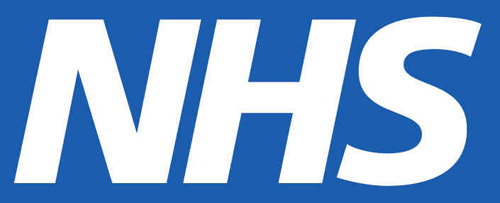HEALTH chiefs have revealed a seven-fold increase in the number of young Scots struck down by multiple sclerosis.
The country’s biggest health board, Greater Glasgow, diagnosed 20 people under the age of 30 with the incurable neurological condition last year.
The board, which covers a quarter of the population, diagnosed just three people in the same age group in 2007.
Overall, Scottish health boards say that in the past five years there has been a 30% increase in Scots of all ages diagnosed with MS.
Multiple sclerosis is the most common disease of the central nervous system and symptoms include muscle paralysis and loss of balance. Many sufferers are confined to wheelchairs.
Health experts warn that a lack of “sunshine drug” vitamin D and other environmental factors could be to blame for rocketing numbers of younger Scots suffering from MS.
All of Scotland’s health boards were asked to give details of the number of people being diagnosed with MS, broken into age brackets.
NHS
NHS Greater Glasgow and Clyde revealed 20 people aged 10-29 were diagnosed with multiple sclerosis last year, up from just three in 2006/7.
It also saw a jump in the number of 30-39-year-olds diagnosed. Last year, 41 people of that age were told they had MS in Greater Glasgow compared with 15 in 2006/07..
Lanarkshire also reported a sudden spike in young people being diagnosed. Last year, nine people under 30 were diagnosed with MS. In 2007 there were no reported cases.
Other health boards refused to give age-specific statistics, but did show big increases in the disease across all age groups.
In Forth Valley 19 people were diagnosed with MS in 2007, compared with 24 last year.
NHS Grampian jumped from 52 to 65 in the same period.
Glasgow saw its overall numbers almost double, from 89 diagnosed in 2007 to 177 last year.
And NHS Lanarkshire had more reported cases than Scotland’s biggest board Glasgow, rising from 206 to 264 in the same five year time frame.
Some boards, including NHS Lothian and NHS Fife only provided information from 2010 onwards.
Neurologist
Dr Anna Williams, Honorary Consultant Neurologist at the University of Edinburgh’s MRC Centre for Regenerative Medicine, said: “It could be that people before may have ignored earlier symptoms.
“It could also be because, generally, there are more auto-immune disorders in Scotland. Some people believe it is because we are living in a clean, sterile environment. It has also been linked to a lack of vitamin D.
“In fact, more and more people are concluding that vitamin D may be able to dampen down auto-immune diseases, including multiple sclerosis.”
One in five MS sufferers has a benign form with mild attacks and no permanent disability, while another 15% have a progressive disease that steadily worsens.
The average life expectancy for someone with multiple sclerosis is 35 years after symptoms begin. A rare, acute form of the disease can be fatal within weeks.
Scotland has the highest prevalence of multiple sclerosis in the world. It also has one of the lowest levels of vitamin D, due to a lack of sunshine and a diet low in oily fish.
Stuart Rose, 23, a pupil support assistant from Inverness, was diagnosed with multiple sclerosis when he was just 15.

Stuart was tested for MS after feeling numbness down the left side of his body while playing underwater hockey with friends, and then experiencing double vision three months later.
“When I was first diagnosed I was 15, and had symptoms since I was 14.
“I felt shocked and upset, but I found that everyone, from my school, to my parents and my friends were all very supportive, which was a great comfort.
“As I have relapsing, remitting MS, symptoms can come and go. I have actually been relapse free for almost three years.
“I think the unpredictability of multiple sclerosis is the hardest part to deal with. I was diagnosed unusually young and it did make me grow up fast in a lot of ways and really think about my future.”
He added: “When I was first diagnosed I called the MS Society helpline and spoke to somebody for about half and hour. I probably didn’t realise at the time how much it had helped me. It was really, really important and I have had a lot of support from them.
“I have raised £8,500 in fundraising, and I find that running has also helped with my MS symptoms.”
TV star
Earlier this year TV star Jack Osbourne was diagnosed with the auto-immune disease after he lost 60% vision in his right eye.
The extreme sports enthusiast was diagnosed just three weeks after the birth of his first child, daughter Pearl.
Speaking at the time, he said he had initially been angry and upset, but had since adopted an attitude of “adapt and overcome”.
Ed Holloway, Head of Care and Services Research at the MS Society added: “Awareness of MS and its symptoms has certainly increased over the past few years and this had helped to speed up the time it takes for people to get a diagnosis.
“Diagnostic equipment has also improved. The good news about getting a firm diagnosis – rather than being in a period of limbo not knowing what is wrong – is that people can get access to the support they need from the MS Society and the health care system.”


